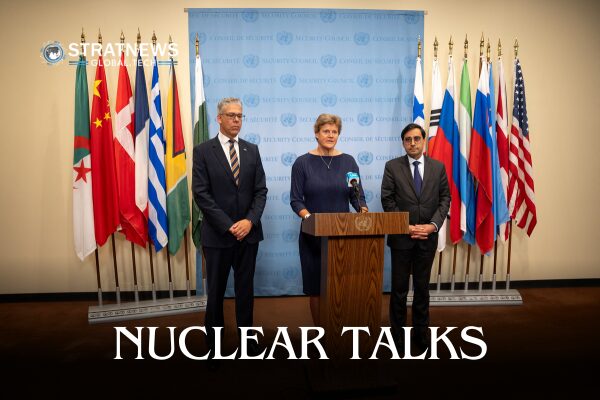Iran and European Powers Agree to Continue Nuclear Talks Amid Sanctions Threat
Iran and key European powers have agreed to continue diplomatic talks over Tehran’s nuclear programme in a last-minute attempt to prevent the reimposition of United Nations sanctions. The agreement was reached during a meeting held on the sidelines of the UN General Assembly in New York.
Foreign ministers from France, Britain, and Germany—the so-called E3—met with Iran’s foreign minister, alongside the EU’s foreign policy chief. Iran’s foreign ministry later stated that the discussions included proposals aimed at keeping diplomatic efforts alive.
“In light of the unjustified and illegal move to begin reinstating the UN Security Council’s sanctions, some ideas and proposals for continuing diplomacy were raised during the meeting, and it was agreed that consultations will continue,” the ministry said in a statement.
European officials did not immediately comment following the talks.
Countdown to sanctions reactivation
On 28 August, the E3 triggered a 30-day mechanism to reinstate UN sanctions on Iran. This process, due to end on 27 September, was initiated on the grounds that Iran had failed to comply with the 2015 nuclear deal, which was designed to limit its ability to develop nuclear weapons.
Tehran has consistently maintained that its nuclear activities are for peaceful purposes. However, confidence in a diplomatic resolution appears low. German Foreign Minister Johann Wadephul noted, “The possibilities and chances of reaching a diplomatic solution before sanctions are triggered are extremely slim.”
Iranian Foreign Minister Abbas Araqchi urged the E3 to choose between “cooperation or confrontation,” echoing scepticism expressed by both sides.
Iran insists on fair terms
Ali Larijani, a senior adviser to Iran’s Supreme Leader, criticised Western nations for failing to fulfil their commitments. He said Iran would only accept a “reasonable and fair proposal that guarantees Iran’s interests,” according to state media.
European powers have proposed delaying the return of sanctions by up to six months. This extension would be contingent upon Iran restoring access to UN nuclear inspectors, addressing concerns about its enriched uranium stockpile, and engaging in direct talks with the United States.
US and Iran remain at odds
US President Donald Trump took a hard stance during his UN address, stating, “My position is very simple: The world’s number one sponsor of terror cannot be allowed to possess the most dangerous weapon.”
In response, Iran’s Supreme Leader Ayatollah Ali Khamenei reiterated that Iran has no intention of developing nuclear weapons. “We do not need nuclear weapons, and do not intend to produce one,” he said in a recorded message.
Khamenei also rejected any negotiations with the United States, insisting such talks would not serve Iran’s interests and would lead nowhere.
with inputs from Reuters


